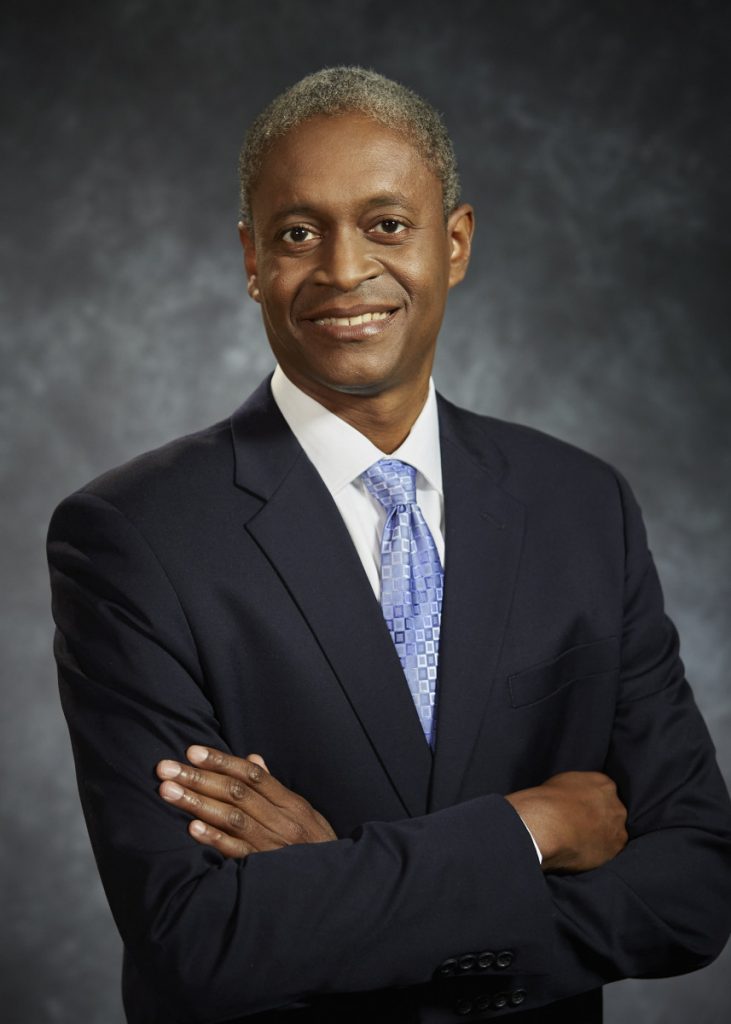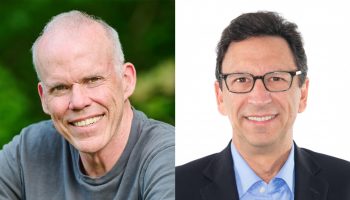DAVID KWIATKOWSKI – STAFF WRITER

Week Seven’s theme of “The State of the Economy: Where Do We Go From Here?” asks the question that lingers after a pandemic that halted the world’s economy: What now?
As a part of the Chautauqua Lecture Series, Raphael W. Bostic will be delivering his talk, “An Economy That Works for All,” at 10:30 a.m. Wednesday, Aug. 11 in the Amphitheater, presented in partnership with the African American Heritage House.
Bostic is the 15th president and CEO of the Federal Reserve Bank of Atlanta. The bank serves the Sixth Federal Reserve District, which includes Alabama, Florida, Georgia and parts of Louisiana, Mississippi and Tennessee.
In Bostic’s role, he oversees monetary policy, bank supervision and regulation, and payment services.
From 2009 to 2012, he served as the assistant secretary for policy development and research at the U.S. Department of Housing and Urban Development.
He graduated from Harvard University in 1987 with a combined major in economics and psychology and earned his doctorate in economics from Stanford University in 1995.
He served as a professor at the University of Southern California in the School of Policy, Planning and Development. His research has spanned fields like home ownership and the role of institutions in shaping policy effectiveness.
As for his lecture, Bostic plans to first acknowledge how the economy is currently progressing and its condition before the pandemic. He also plans to acknowledge other areas where the economy is not working as well.
“We as the Atlanta Fed have a catchphrase: ‘An economy that works for everyone,’ ” Bostic said. “That’s what we’re trying to strive for. I’m going to talk a bit about for whom the economy isn’t really working that well, and then identify and focus on that as an area of potential to help us collectively have a stronger economy, a more resilient economy and a more inclusive economy that can lead to more robust and broader base growth.”
The Federal Reserve Bank of Atlanta does a lot of data analysis to see where the gaps are in the economy, and what groups make up those gaps.
He cites people living in rural areas, women and ethnic minorities.
“There’s a long history of several decades of rural places falling behind the rest of the country, and the people that live there face bigger challenges affecting growth,” Bostic said. “We’ve known for a long time that women have lagged men in terms of labor market, particularly when it comes to pay, but increasingly through the COVID pandemic crisis, labor force participation and women’s participation in the labor market has really taken a disproportionate hit. African Americans, Latin(x people), Native Americans for decades lagged in the general economy in terms of employment rates, in terms of wages and the types of jobs they have access to.”
Economics is a field that can get confusing to the average person fairly quickly, and Bostic is conscious of that when he speaks about issues like these.
“Economists often talk and use a lot of lingo that isn’t often accessible,” Bostic said. “I really try not to do that. I try to talk in plain language because I actually believe that economics is something everybody can understand and everyone should be able to understand.”
Bostic is a professor by trade, so he will be leaving Chautauquans with actionable steps that they can take into their everyday lives.
“What I’m really going to challenge the audience to do is think hard about ways that they can be part of the solution,” Bostic said. “One of the challenges that we have right now is that there are lots of people who don’t have access to information that allows them to know where they can go to advance their careers and to get skills and to find out about jobs. I think that there are things that (people) can do (to) help bridge that gap and make it more likely and easier for people who have, perhaps, been on the outside, to have the perspective of someone on the inside, which can help them.”




